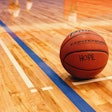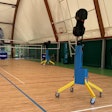Keeping waivers crystal clear can protect your fitness center from lawsuits.
Some waivers are upheld when challenged in a court of law, while others are not. Why do some waivers pass and some fail? All waivers must meet the standard of being clear and unambiguous, and the most frequent reason for failure is that the waiver was ambiguous and poorly written. The following four cases illustrate two well-written waivers and two poorly written waivers.
Failing Waivers
In a 2007 California case [Zipusch v. LA Workout Inc., 2007 Cal. App. LEXIS 1652], a member (with the last name Zipusch) fell when her foot stuck to a sticky substance on a treadmill at an LA Workout. LA Workout claimed that the waiver signed by Zipusch protected it from liability. However, the wording of the waiver did not protect the facility. First, it stated "LA Workout will not be liable for ... the negligence or other acts of anyone else using LA Workout." This, in itself, is not bad, but it fails to include "negligence of the club." Then it declared, "member will ... indemnify LA Workout for any negligence EXCEPT the sole negligence of the club." To indemnify against the negligence of the club is the primary purpose of the waiver, so why exclude it?In a 2008 Florida case [Murphy v. Young Men's Christian Asso. of Lake Wales, 2008 Fla. App. LEXIS 2035], a client was injured while using exercise equipment at a YMCA, and sued, alleging negligence in failing to maintain, inspect and repair the equipment. The waiver language included three key sentences: 1) "I understand that even when every reasonable precaution is taken, accidents can sometimes still happen. ..." 2) I release ... from all liability. ..." and 3) This release includes any claims based on negligence ... of the Lake Wales Family YMCA. ..." The court held that "every reasonable precaution" places a condition on the release, making it effective only if "every reasonable precaution" was taken - which is a matter for the jury. The court ruled that this conflict of statements could cause confusion, and could be interpreted by the plaintiff to mean that the waiver applies only to unavoidable incidents.
Passing Waivers
In an LA Fitness case [Handy-Mixon v. LA Fitness, Los Angeles County Superior Ct. No. VC 044274, 2007], a well-written waiver served to protect the fitness center from liability for a serious leg and foot injury sustained when the chain, guardrail and pedal of a group exercise bike fell off, and the member's foot was trapped. The plaintiff claimed that an LA Fitness staff member assured her that the waiver did not cover injuries resulting from equipment failure. The staff member testified that 1) he had received no training in explaining the waiver, 2) he understood that the waiver extended only to self-inflicted injuries such as pulled muscles and 3) verified that he did assure the client that the waiver did not apply to injuries due to equipment failure. In spite of this, the waiver was enforced by the court because it contained an integration clause that stated, "agrees that no oral representations, statements or inducement apart from the foregoing written agreement have been made."In another case, a client (Heilig) who injured his ankle when he fell during a rock climbing competition in a climbing gym sued the provider alleging negligence [Heilig v. Touchstone Climbing Inc., 2007 Cal. App. Unpub. LEXIS 8770]. Heilig had signed a waiver at another competition three months earlier, and was not required to sign another waiver immediately prior to this new competition. Among other things, Heilig claimed that the waiver signed three months earlier should not release him from future competition at a facility that did not even exist at the time of signing. The court, however, stated that the waiver specified its duration as "forever," and spelled out "the use of any of [Touchstone's] services or facilities, at this location and all other locations."
Making The Grade
Cautious fitness facilities will not only use a waiver, but will also be aware that problems can arise from poor wording in waivers, or administration of the waiver. Fitness centers can take steps to ensure that the waiver is effective by 1) enlisting an attorney who has experience writing liability waivers for sport, recreation and fitness businesses; 2) attending sessions on liability and waivers at professional conferences; and 3) reading articles and books on the subject.Read Next




































